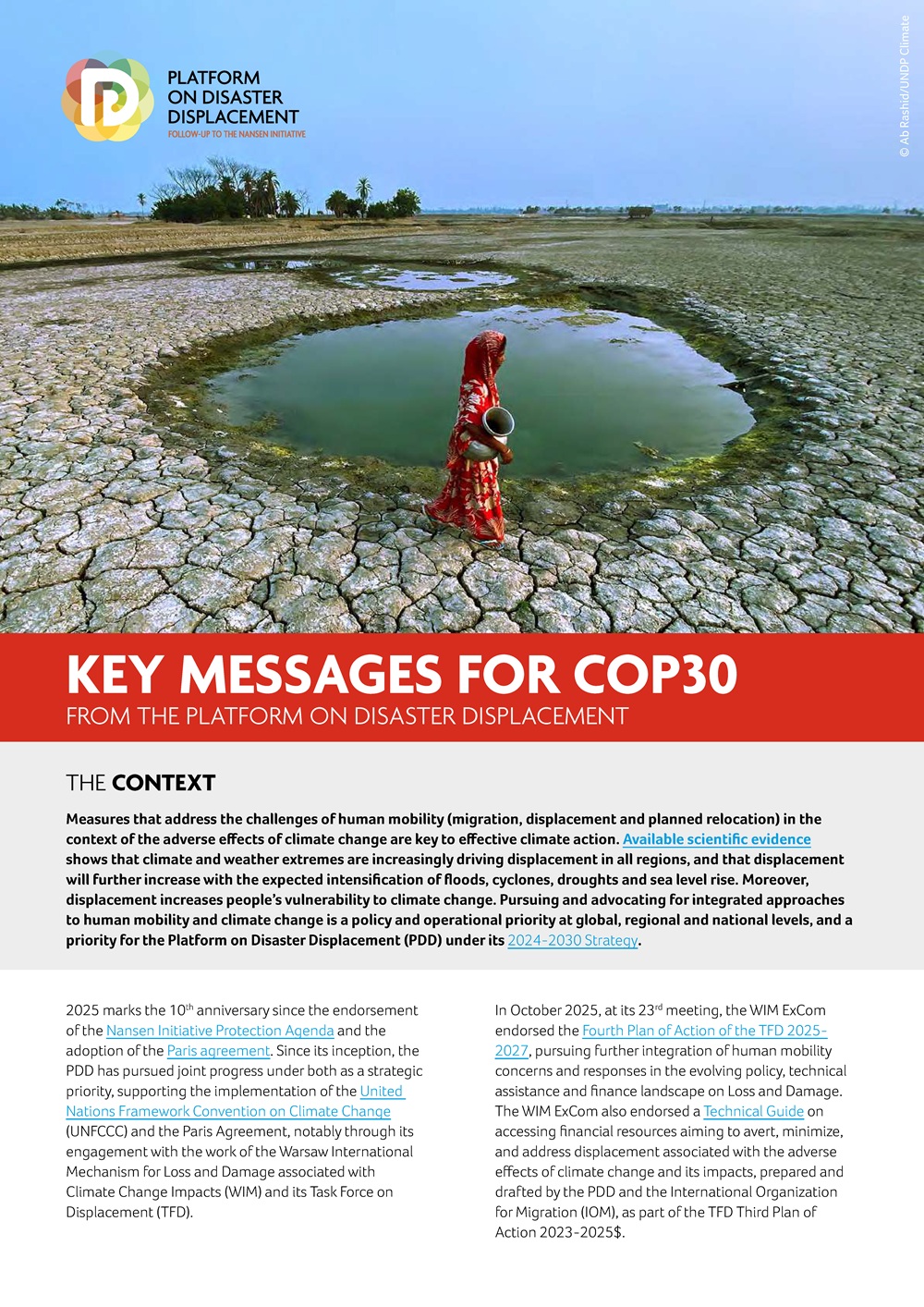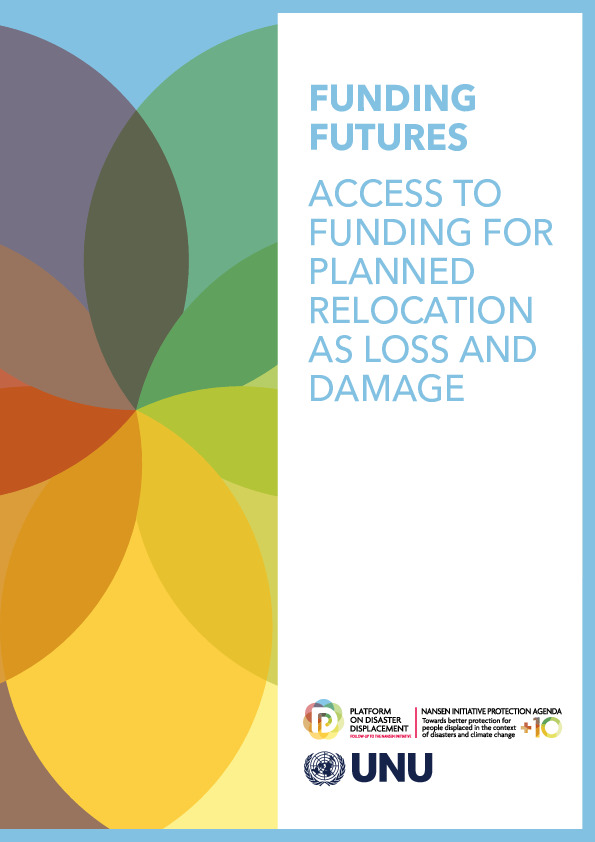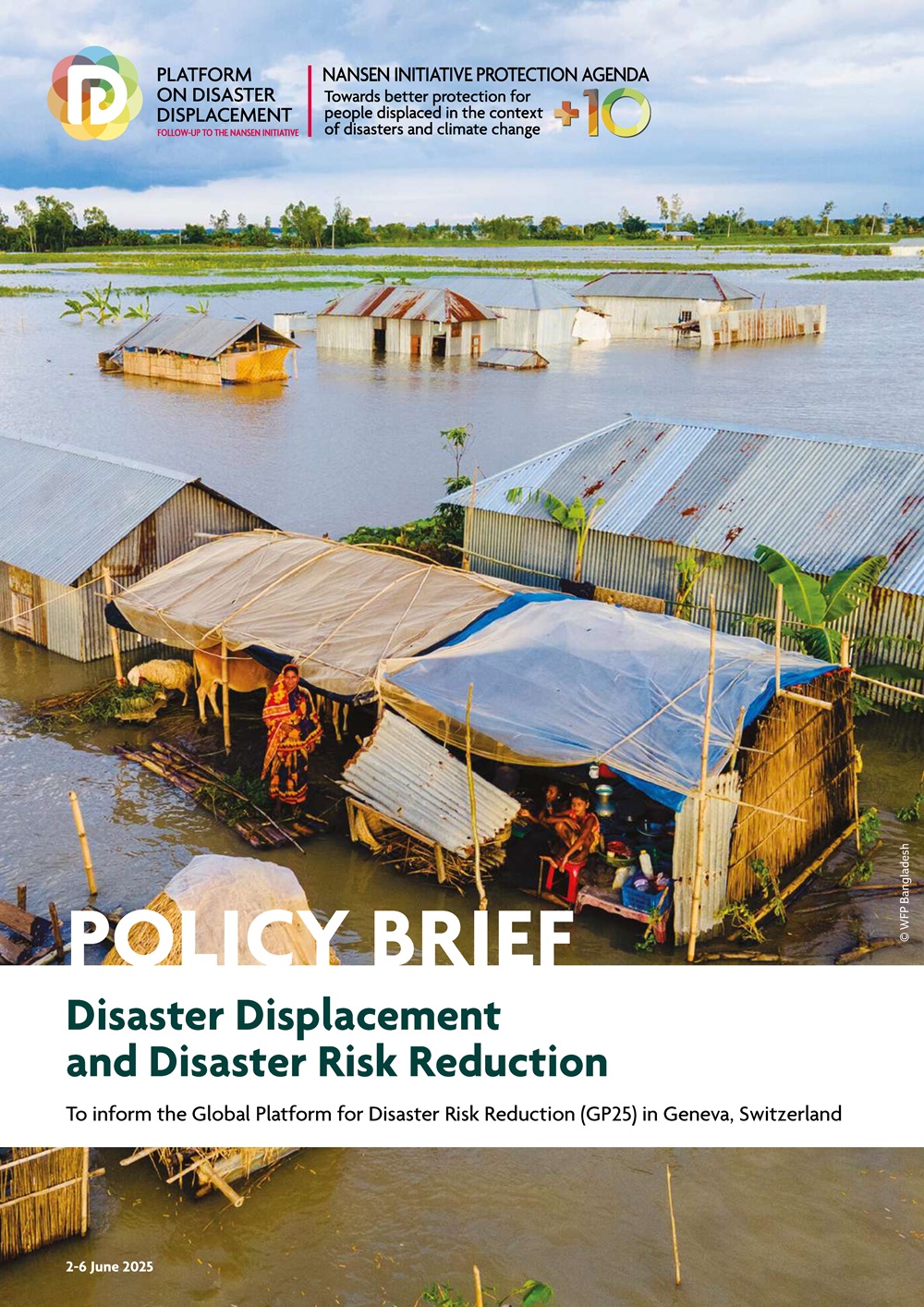The United Nations system’s mandates with respect to averting, minimizing and addressing displacement related to climate change: Considerations for the future
PDD
This study assesses institutional frameworks and mandates within the United Nations (UN) system relevant to the Task Force on Displacement’s (TFD) overall objective to “develop recommendations for integrated approaches to avert, minimize and address displacement related to the adverse impacts of climate change,” considering, in accordance with its mandate, “both cross-border and internal displacement.” It contributes to the Workplan of the Executive Committee of the Warsaw International Mechanism for Loss and Damage associated with Climate Change Impacts (WIM Excom), Action Area 6: Enhance the understanding of and expertise on how the impacts of climate change are affecting patterns of migration, displacement and human mobility; and the application of such understanding and expertise.
To better understand the context of UN entities’ current mandates and functions, the study first traces how the issue of displacement related to climate change emerged in the historical context of the UNFCCC as well as other relevant UN processes and frameworks. This wider institutional and operational review contributes to the WIM’s workplan because it allows for the development of a conceptual framework that draws from related policy areas to better understand what it means to “avert, minimize and address displacement,” given that these terms, and even “loss and damage,” have not been formally defined under the UNFCCC.
This conceptual framework, in turn, guides discussion on what set of activities and approaches may constitute effective responses to the challenges of displacement related to climate change. Based on
this, the study provides an initial, rough assessment of the extent to which the UN system’s current mandates and functions allow it to provide the support affected States need to carry out those activities. It concludes with recommendations for how the UN system could improve support for States’ efforts to avert, minimize and address displacement related to climate change, highlighting opportunities to coordinate the UN system’s contributions within existing mechanisms and processes.




